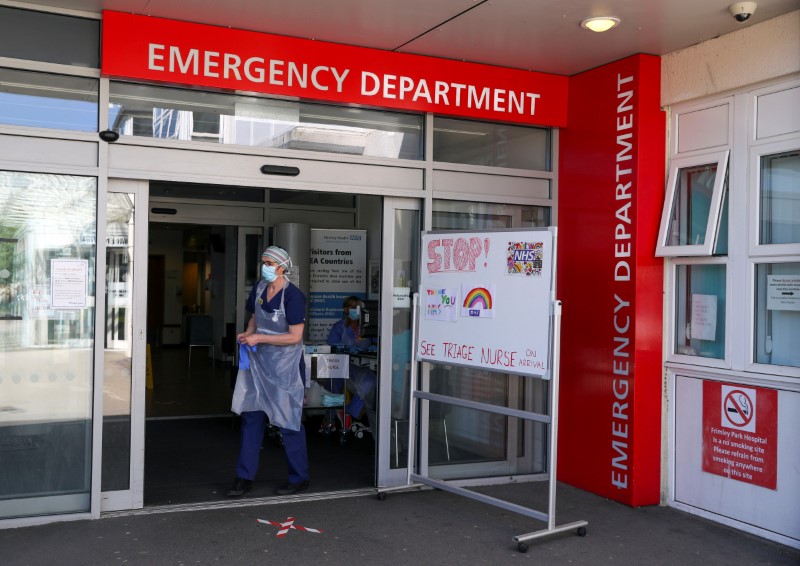LONDON (Reuters) - Britain's emergency spending and tax cuts to soften the economic hit from the coronavirus crisis are likely to cost 132.5 billion pounds ($166.1 billion), up about 7.5% from a previous estimate, the country's budget watchdog said on Thursday.
The 9 billion-pound increase was caused by higher costs for the government from its two wage subsidy schemes that are at the heart of its attempts to slow a surge in unemployment.
The Office for Budget Responsibility (OBR) said the Coronavirus Job Retention Scheme for employees covered more low-earning workers than it previously assumed, reducing the flow back to the government of income taxes and raising its net cost.
The OBR also raised the price tag of the government's scheme for self-employed people that was extended last week by finance minister Rishi Sunak.
The estimated cost of the government's emergency response measures is equivalent to more than twice the British government's total annual borrowing last year.
The OBR has previously said that Britain is on course for a roughly 300 billion-pound hole in its public finances this financial year, or about 15% of its gross domestic product.
That total includes the loss of tax revenues caused by the government's shutdown of much of the economy as well as the cost of its emergency spending and tax measures.
